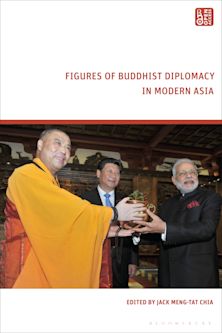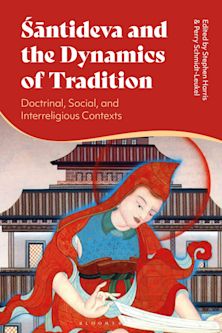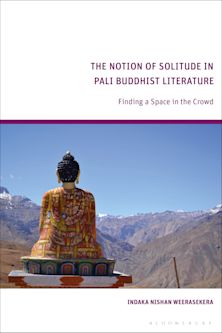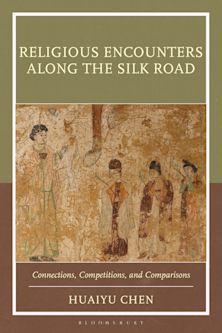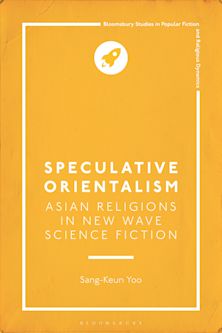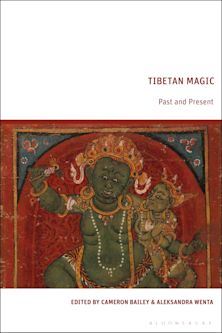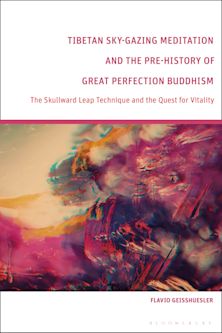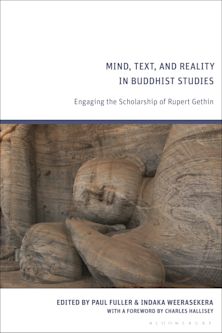- Home
- ACADEMIC
- Religious Studies
- Buddhism
- Dialectical Practice in Tibetan Philosophical Culture
Dialectical Practice in Tibetan Philosophical Culture
An Ethnomethodological Inquiry into Formal Reasoning
Dialectical Practice in Tibetan Philosophical Culture
An Ethnomethodological Inquiry into Formal Reasoning
This product is usually dispatched within 3 days
- Delivery and returns info
-
Free CA delivery on orders $40 or over
You must sign in to add this item to your wishlist. Please sign in or create an account
Description
Tibetan Buddhist scholar-monks have long engaged in face-to-face public philosophical debates. This original study challenges Orientalist text-based scholarship, which has overlooked these lived practices of Tibetan dialectics. Kenneth Liberman brings these dynamic disputations to life for the modern reader through a richly detailed, turn-by-turn analysis of the monks' formal philosophical reasoning. He argues that Tibetan Buddhists deliberately organize their debates into formal structures that both empower and constrain thinking, skillfully using logic as an interactional tool to organize their reflections. During his three years in residence at Tibetan monastic universities, Liberman observed and videotaped the monks' debates. He then transcribed, translated, and analyzed them using multimedia software and ethnomethodological techniques, which enabled him to scrutinize the local methods that Tibetan debaters use to keep their philosophical inquiries alive. His study shows the monks rely on such indigenous dialectical methods as extending an opponent's position to its absurd consequences, 'pulling the rug out' from under an opponent, and other lively strategies. This careful investigation of the formal philosophical work of Tibetan scholars is a pathbreaking analysis of an important classical tradition.
Table of Contents
Chapter 2 Orientalism and Tibetological Praxis
Chapter 3 Ethnomethodology and the Retrieval of Ordinary Society
Chapter 4 The Organization of Reason in Tibetan Philosophical Debating
Part 5 II Philosophical Praxis in the Tibetan Academy
Chapter 6 Organizing the Objectivity of the Discourse: Dialectics and Communication
Chapter 7 Reason as a Public Activity
Chapter 8 Rhymes and Reason: Reason as the In Vivo, Concerted Work of Tibetan Philosophers
Chapter 9 Strategies in Tibetan Philosophical Debates
Part 10 III A Sociology of Reasoning
Chapter 11 Using Reasons: Capabilities of Formal Analysis
Chapter 12 Some Formal Analytic Betrayals of Philosophy
Product details
| Published | Sep 26 2007 |
|---|---|
| Format | Paperback |
| Edition | 1st |
| Extent | 338 |
| ISBN | 9780742556126 |
| Imprint | Rowman & Littlefield Publishers |
| Dimensions | 230 x 153 mm |
| Publisher | Bloomsbury Publishing |
About the contributors
Reviews
-
The book presents a balanced analysis of the socially embedded practices of Tibetan debate.
Himalayan Research Bulletin
-
As with other milestones, this is sure to set the standard for future ethnomethodological, conversation analytic, and even more general ethnographic work.
Contemporary Sociology
-
Liberman has produced a remarkable and in many ways quite unique piece of work. In a field of study (that of Tibetan culture) previously dominated entirely by philologians and historians, Liberman has been able to establish a foothold for sociologists and other social scientists eager to explore the concrete practices of Tibetans in their actual life-world.
Human Studies
-
Liberman renders great service to those of us who are willing to step outside the boundaries of textual studies to join him in exploring actual Tibetan debate culture. His book is of definite benefit to both unprepared readers and those already familiar with Buddhist philosophy in general and Geluk philosophical culture in particular. Together with the accompanying Web site, parts of the book can also be adopted for advanced courses on Tibetan language, culture, and philosophy. Dialectical Practice in Tibetan Philosophical Culture not only brings more nuance and detail to our understanding of Tibetan philosophical practices; it opens altogether a new perspective on this exciting and important dimension of Buddhist culture in general.
Sophia: International Journal of Philosophy and Traditions
-
Liberman's first hand exposure… is remarkable. Liberman renders great service to those of us who are willing to step outside the boundaries of textual studies to join him in exploring actual Tibetan debate culture. His book is of definite benefit to both unprepared readers and those already familiar…. It opens altogether a new perspective on this exciting and important dimension of Buddhist culture.
Springer Science + Business Media
-
An exceptional ethnography. . . . Ken Liberman describes orderlinesses of ordinary society-as unfamiliar and strange to peer-reviewed literatures as they are true.
Harold Garfinkel, University of California, Los Angeles; from the foreword












